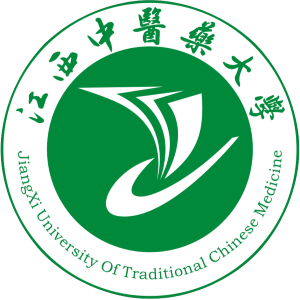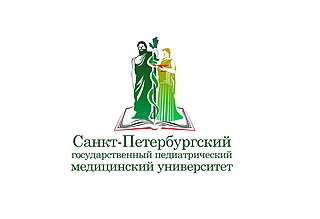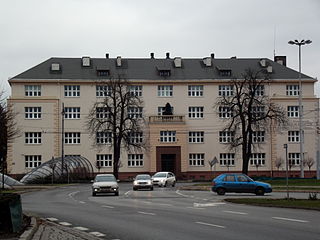| | |
| Type | Public |
|---|---|
| Established | 1964 [1] |
| Dean | Prof. Dr. Hanaa El-Ebeisy |
Academic staff | 714 (year 2008) |
| Students | 1,869 (year 2008) |
| Location | , Egypt |
| Website | AFMG |
Al-Azhar University Faculty of Medicine for Girls is a faculty of Al-Azhar University.
| | |
| Type | Public |
|---|---|
| Established | 1964 [1] |
| Dean | Prof. Dr. Hanaa El-Ebeisy |
Academic staff | 714 (year 2008) |
| Students | 1,869 (year 2008) |
| Location | , Egypt |
| Website | AFMG |
Al-Azhar University Faculty of Medicine for Girls is a faculty of Al-Azhar University.
The Faculty of Medicine is located at Al-Azhar University in Nasr City, Egypt. The hospital is located at Al-Zahraa University Hospital in El Abaseya in Cairo, Egypt.
The Faculty of Medicine for Girls, a part of Al-Azhar University, was established following the enactment of Law No. 103 in May 1961, which aimed at reorganizing Al-Azhar and its associated institutions.
The initiative to create this faculty began in 1964 with the university council's decision to establish a section for Medicine and Surgery studies. Initially, this section was affiliated with the Islamic Faculty for Girls, focusing on the Egyptian system of medical education, which includes teaching, research in diagnostic, curative, and preventive medicine, and the integration of Islamic studies and values.
Academic operations started in 1965 with the preliminary year, and subsequently, various academic and clinical departments were established. By 1969, the faculty had begun academic activities in its laboratories and clinical studies at Manshiet El-Bakry Hospital, following an agreement with the Egyptian Ministry of Health.
The year 1971 saw the introduction of postgraduate studies in all departments. In 1979, the faculty's status was elevated to an independent entity within the university through Republican Decree No. 116. Since then, it has shown significant growth and development in all departments, a trend that continues.
In 1983, the faculty expanded its facilities by acquiring Al-Zahraa University Hospital. [ citation needed ]
Presently, the Faculty of Medicine for Girls houses 31 departments and two specialized units. It offers a range of academic programs, including a bachelor's degree in Medicine and Surgery, 29 diploma programs, 34 master's degrees, and 32 doctorate degrees in various medical fields.

The Theodor Bilharz Research Institute is located in Giza, Egypt.

Ayub Medical College is a leading public medical institute located in Abbottabad, Pakistan. It is one of the medical colleges affiliated to Khyber Medical University. AMC is the second oldest medical college of Khyber Pakhtunkhwa.

Established in 1870 as the Colombo Medical School, the Faculty of Medicine of the University of Colombo, is the second oldest medical school in South Asia. It is considered to be the top most medical faculty in the country which requires the highest entry qualification in GCE Advanced Level examination.

The Jordan University of Science and Technology, often abbreviated JUST, is a public technological university located on the outskirts of Irbid, at Ar Ramtha in northern Jordan. The university comprises twelve faculties that offer a spectrum of undergraduate and higher study programs, in addition to King Abdullah University Hospital which is a tertiary teaching hospital affiliated with JUST and located within its campus.

Kasr AL Ainy Hospital is a research and teaching hospital in Cairo, Egypt. This hospital is affiliated with the Kasr AL Ainy Faculty of Medicine, Cairo University and was founded on March 11, 1827.

The University of Medicine 2, Yangon is a university of medicine, located in North Okkalapa, Yangon, Myanmar. The university offers M.B., B.S. degrees and graduate degrees in medical science. The university is one of the most selective in the country, and accepts approximately 300 students annually based solely on their University Entrance Examination scores.

Ain Shams University, Faculty of Medicine or School of Medicine, is a public Egyptian graduate school and one of the faculties of Ain Shams University. Now, it is one of the largest educational medical institutions in Africa and the Middle East. It was founded in 1947, making it the third oldest medical school in Egypt. It has promoted numerous programs of medical care to serve society, in addition to environmental development and continuous scientific research for local and international health.
It became part of Ain Shams University in the 1950s, when it was established after adding several faculty members. Each year, the faculty's different departments hold conferences dedicated to the recent advances in medical science.

Jiangxi University of Traditional Chinese Medicine, designated as a medical university in Nanchang, Jiangxi, is an institution of higher learning under the leadership of Jiangxi provincial government.

Murshidabad Medical College and Hospital is a government-run medical college located in Berhampore, Murshidabad district, West Bengal, India. This college was established in 2012, mainly it serves the people of district Murshidabad, Birbhum and the northern part of Nadia by providing preventive, diagnostic and curative services.

Saint Petersburg State Pediatric Medical University, formerly known as St. Petersburg State Pediatric Medical University (SPbSPMU) is a medical university located in Saint Petersburg, Russia, providing higher medical education with a specialization in Pediatrics.

The Faculty of Medicine - Syrian Private University was founded in 2005. It is the second faculty of medicine in a private university in Syria.

Khairpur Medical College is an 8th public medical institution located in the city of Khairpur, Sindh, Pakistan.
Vallabhbhai Patel Chest Institute is a postgraduate medical institute located in New Delhi, India, and supported by the University of Delhi. The Ministry of Health & Family Welfare of India takes care of its endowment. It has been categorized as one of the constituent colleges of the University of Delhi. The institute's teaching focuses on chest diseases as well as their treatment. The institute is maintained under the statute XX(2) of the University.

Ahmed Samy Khalifa was an Egyptian pediatric hematologist and oncologist. He established the specialty of Pediatric Hematology/Oncology at Ain Shams University. He treated thousands of children with thalassemia, leukemia and other hematologic and ontological diseases all over Egypt.

Daoud Mustafa Khalid was a prominent Sudanese physician and neurologist. He was known as the "founding father of medicine in Sudan''.

The Ludwik Rydygier Collegium Medicum in Bydgoszcz is an extension of the Nicolaus Copernicus University in Toruń (UMK), aimed at training students in medical sciences.

Ahmed Mohamed El Hassan FRCP FTWAS was a Sudanese professor of pathology.
Mohamed Nagy El Mahlawy, an Egyptian nephrologist, and former president of Ain Shams University. He was the first to introduce artificial kidneys in Egypt and the Middle East and holds Order of the Republic (Egypt), First Class and the Order of Merit, Third Class and Fourth Class.